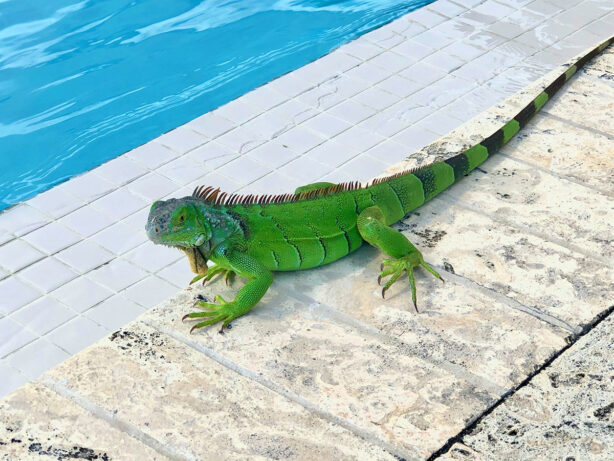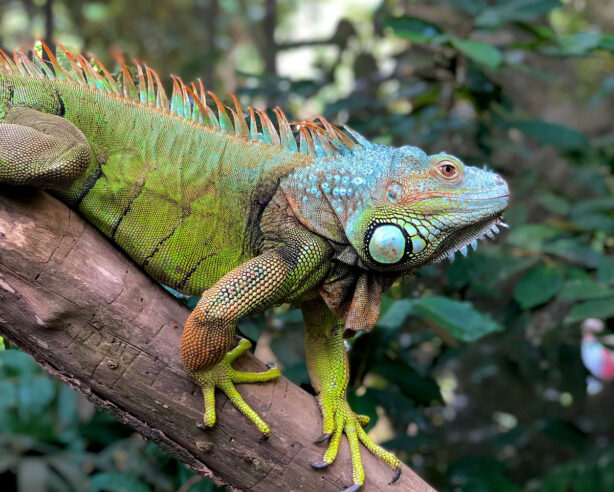Iguanas are large reptiles that come in many colors and resemble miniature dinosaurs. For this reason, they may be attractive to children when they’re found in a nearby area.
Iguanas generally like to be near a body of water, like a swimming pool, and feast on green leafy vegetables and plants. They are not known for being affectionate and, in general, like to be left alone.

Yet, iguanas can be dangerous in that they do carry bacteria that can be harmful to humans, especially kids, the elderly, and women who are pregnant. When they feel threatened or do not have enough to eat, they can also turn aggressive.
If you are dealing with unwanted iguanas on your property, you should call for iguana removal in Boca Raton or wherever you live. You don’t want to wait until they have consumed half of your landscaping or burrowed where you least expect them.
Iguanas Have Great Defensive Skills
Even though iguanas generally like to be left in peace, they do have excellent defensive skills when they feel threatened. In an instant, they can bite, scratch, and whip their sharp tails to cause injury to other animals and humans around them.
Their jaws are very strong and can cause serious injuries when they bite. They can also potentially pass salmonella to humans.

Why Do Iguanas Get Aggressive?
There are different species of iguanas, and each one reacts differently to their environment. They also often have their own distinct personalities, which means that they may react differently from one day to another.
That being said, there are usually a few common reasons an iguana may get aggressive. Here are the most frequent ones:
Being Territorial
Once iguanas establish their territory, they may get aggressive if they feel their space is being threatened by another animal or human getting too close.
Feeling Threatened or Scared
The reaction of an iguana that feels threatened or scared is to attempt to bite or whip its tail. They may also decide to run away if the threat is too large for them.
Breeding Season
When breeding, iguanas of both sexes may react differently than usual. If they interpret you, your kids, or another animal as an eligible partner, they may try to grab hold.
While they may not be looking to harm you, it can be a scary experience for a young child. In the wild, their breeding season runs for about 30 days.
They Display the Alpha Male Trait
Some male iguanas possess the alpha male trait and like to display it. This makes them much more aggressive than other, smaller male or female iguanas.
Hormones
Hormones may be to blame for an iguana acting differently one day. They may react differently from their usual behavior when their hormones are out of balance, which can be caused by unexpected changes in their physical environment.
Avoid an Iguana Attack
Although some iguana attacks may be unpredictable, the best way to avoid being the victim of their attacks is to avoid placing them in a position where they feel threatened.
In general, iguanas aren’t dangerous since they prefer to avoid humans, and will run away rather than attack.
Teach kids to keep their distance and stay out of reach of the jaws and tail, and the iguana will likely keep its distance as well.
